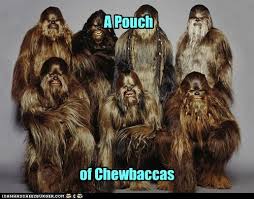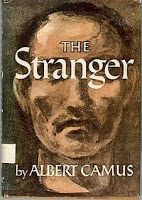What do you call a pair of crows? Answer – attempted murder.
This type of joke is from a genre called highbrow humour. Why… because you have to have some specific knowledge before you can understand the joke. In this attempted murder case (pun intended) you have to know that the collective noun for three or more crows is a murder. Ah, now the joke makes sense… and leads us nicely into what this post is actually about i.e. collective nouns.
It never ceases to amaze me just how many collective nouns there are in the English language. For example, we have a murder of crows (you knew that!), a belt of asteroids, a cackle of hyenas, a flight of stairs, a sentence of judges, an impatience of wives and a den of thieves. These ones are fairly normal and, I’d guess, fairly widely known. If you Google ‘collective nouns’ you’ll find a wealth of words describing nearly every group imaginable. Even with the abundance of official collective nouns, there are still a lot of groups which have yet to be allocated their own special word.
- A blaze of firemen
- A smothering of Social Workers
- A gathering of combine harvesters
- A shoal of nudists
- A wunch of bankers
- A collection of philatelists
- A camp of bell-ringers
- A heard of listeners
- A number of mathematicians
- A drift of castaways
- A pouch of Chewbaccas


